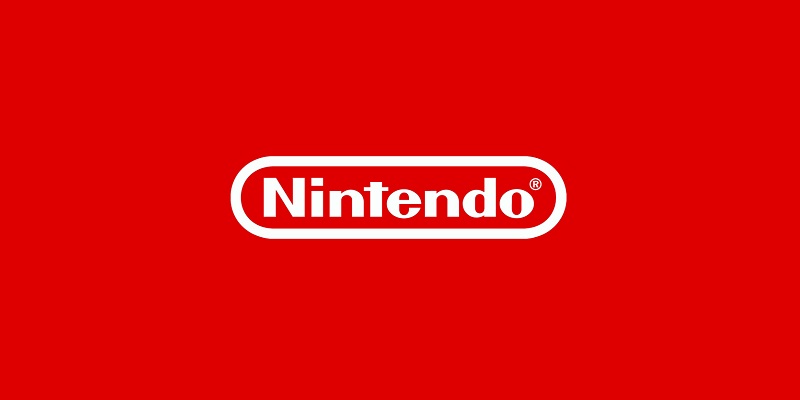Nintendo – 82nd Annual General Meeting of Shareholders: approval ratings, CSR report, message from the President, Q&A
On June 29th, Nintendo held their 82nd Annual General Meeting of Shareholders, where shareholders were invited to vote on several matters. The first one is the distribution of surplus: the company proposed a dividend of 1 410 Yen / share, and this was approved by the vast majority of shareholders:
- For: 920,558 votes in favour (99.72%)
- Against: 174 votes against
- Did not vote: 29
The second proposal was a Partial Amendment to the Articles of Incorporation, and once again, virtually all shareholders voted yes:
- For: 920,441 votes in favour (99.71%)
- Against: 289 votes against
- Did not vote: 31
Proposals 3 and 4 were the Election of Six Directors (excluding Directors who are Audit and Supervisory Committee Members) and the Election of Four Directors who are Audit and Supervisory Committee Members.
Thanks to that vote, we have the approval ratings for all 6 Directors (who were re-elected):
- Shuntaro Furukawa: 815,297 votes in favour (88.32%), 105 175 votes against, 277 did not vote
- Shigeru Miyamoto: 851,470 votes in favour (92.24%), 66,931 votes against, 2,349 did not vote
- Shinya Takahashi: 909,765 votes in favour (98.56%), 8,637 votes against, 2,349 did note vote
- Ko Shiota: 909,761 votes in favour (98.56%), 8,641 votes against, 2,349 did note vote
- Satoru Shibata: 909,764 votes in favour (98.56%), 8,638 votes against, 2,349 did note vote
- Chris Meledandri: 916,185 votes in favour (99.25%), 4,296 votes against, 277 did not vote
Their approval ratings last year were as follows:
- Shuntaro Furukawa: 863 534 votes in favour (96.86%), 24 822 votes against, 904 did not vote
- Shigeru Miyamoto: 872 605 votes in favour (97.88%), 13 924 votes against, 2 731 did not vote
- Shinya Takahashi: 872 600 votes in favour (97.88%), 13 928 votes against, 2 731 did note vote
- Ko Shiota: 869 831 votes in favour (97.57%), 16 696 votes against, 2 731 did note vote
- Satoru Shibata: 872 393 votes in favour (97.85%), 14 135 votes against, 2 731 did note vote
- Chris Meledandri: 885 413 votes in favour (99.31%), 2 948 votes against, 904 did not vote
Shuntaro Furukawa saw a noticeable drop in his approval ratings, no doubt because of the forecast for the current Fiscal Year (ending March 31st 2023) pointing towards less sales, and therefore less revenue, resulting in smaller dividends for shareholders.
And here’s the approval ratings for the Four Directors who are Audit and Supervisory Committee Members:
- Takuya Yoshimura: 846,223 votes in favour (91.67%), 71,997 votes against, 2,516 did not vote
- Katsuhiro Umeyama: 884,041 votes in favour (95.77%), 36,433 votes against, 277 did not vote
- Masao Yamazaki: 909,722 votes in favour (98.55%), 10,757 votes against, 277 did not vote
- Asa Shinkawa: 817,507 votes in favour (88.56%), 98,176 votes against, 5,073 did not vote
Proposal 5 was the Revision of the Amount of Compensation Payable to Directors (Excluding Directors Who Are Audit and Supervisory Committee Members):
- For: 917,589 votes in favour (99.40%)
- Against: 2,217 votes against
- Did not vote: 953
Proposal 6 was the Determination of Compensation to Grant Restricted Stocks to Directors (Excluding Directors Who Are Audit and Supervisory Committee Members and Outside Directors):
- For: 894,504 votes in favour (96.90%)
- Against: 2,217 votes against
- Did not vote: 953
Next, Nintendo have updated their CSR Report: you can find it on this page!
Here’s the new message from the president (Shuntaro Furukawa):
With our CSR goal of “putting smiles on the faces of everyone Nintendo touches,” we constantly examine the best ways for Nintendo to fulfill its social responsibilities through group-wide collaboration.
In alignment with the social conditions surrounding Nintendo, we have been focusing on four CSR priority areas. These include the three areas of “consumers,” “supply chain” and “employees” that we have been evolving since 2018, as well as the newly elevated “environment” priority area.
Our four priority areas encompass initiatives that include improving product quality and ensuring product safety, creating an environment where children can play with peace of mind, promoting CSR procurement through communication with our suppliers, building a work environment that fully enables our employees’ various capabilities and reducing the environmental impact of our products and business activities.
These initiatives are in line with Nintendo’s business goal of providing entertainment that anyone can enjoy regardless of age, gender, past experience and other diverse social backgrounds. We will faithfully continue our efforts, while appropriately disclosing the status of our CSR activities being mindful of our four priority areas.
While cherishing the Nintendo DNA of originality, flexibility and sincerity that we have long fostered, we are committed to accomplishing our CSR goals alongside our aim to be a company that creates smiles for everyone through entertainment.
Finally, the usual Q&A session with investors. The official English translation is now available on this page!
Here’s the list of questions:
Question 1: The stock split scheduled for October 1st of this year means that starting next year we may see an increase in the number of participants at these general meetings of shareholders. Can you tell us your thoughts about the mechanics of holding these meetings going forward? With enough ventilation and social distancing, would it not be possible to hold it in the same way it was prior to the COVID-19 pandemic?
Question 2: I’d like to hear about your Business Continuity Plan (BCP) in the event of a natural disaster and other contingencies.
Questions 3: Are you considering releasing a new iteration or remake of Nintendo franchises such as the F-Zero series, which have not had a sequel released for a long time? There are titles highly rated in Nintendo’s back catalog, and I’d like to see those actively put to use.
Question 4: I’d like to hear about how Nintendo takes care of its employees. Please tell us how the environment at Nintendo headquarters in Japan has changed, and how do you plan to improve working conditions for employees.
Question 5: There was a time when Nintendo conducted business in China under the iQue brand. However, in recent years, you have been conducting business in China in partnership with Tencent. I’d like to hear about the current situation of your business in China. Also, there have been reports of hacks which allegedly have been traced to China. What kinds of risk-management initiatives are you taking to deal with information leaks?
Question 6: Among your Board of Directors, there is currently one female Outside Director, but there are still no female Internal Directors promoted from within the company. What is the current percentage of women in management positions, and is there a possibility that female director candidates will emerge from within the company?
Question 7: Characters from the Nintendo Switch game Fire Emblem: Three Houses appear in the mobile application Fire Emblem Heroes. In the Fire Emblem series and other IP being developed for both the dedicated video game platforms and mobile devices, I expect a quality story with the worlds of the main series firmly incorporated and that make the most of the mobile application. I would like to know about the expansion of Nintendo IP in mobile applications from the perspective of the overall strategy.
Question 8: It seems that you halted business in Russia because of the situation in Ukraine, but what are your thoughts about future business in the region? Also, what is the business situation in the neighboring European region?
Question 9: Comparing the balance sheets at the end of March 2021 and the end of March 2022, inventories have increased by about 110 billion yen. What is the reason for this?
Question 10: What effects have the recent weak yen and global inflation brought about to business? Since Nintendo has a large volume of its sales made overseas, we understand that a weak yen increases the sales amount, but are you considering increasing product prices due to increased component prices and inflation?
Question 11: Last year, Nintendo bought back and canceled treasury shares, and this year announced a stock split and the introduction of a restricted stock compensation plan in addition to further treasury share buybacks. It seems like Nintendo’s capital policy has changed. What kind of discussions led to the implementation of these measures?
Source: Nintendo

